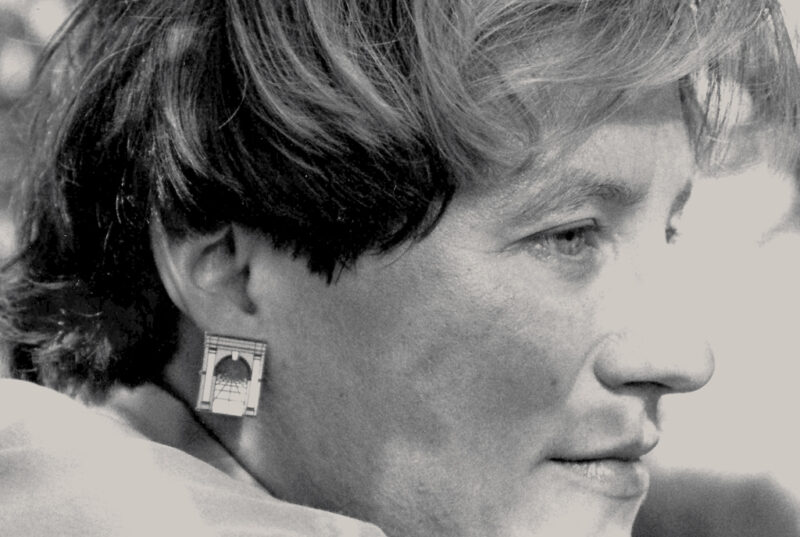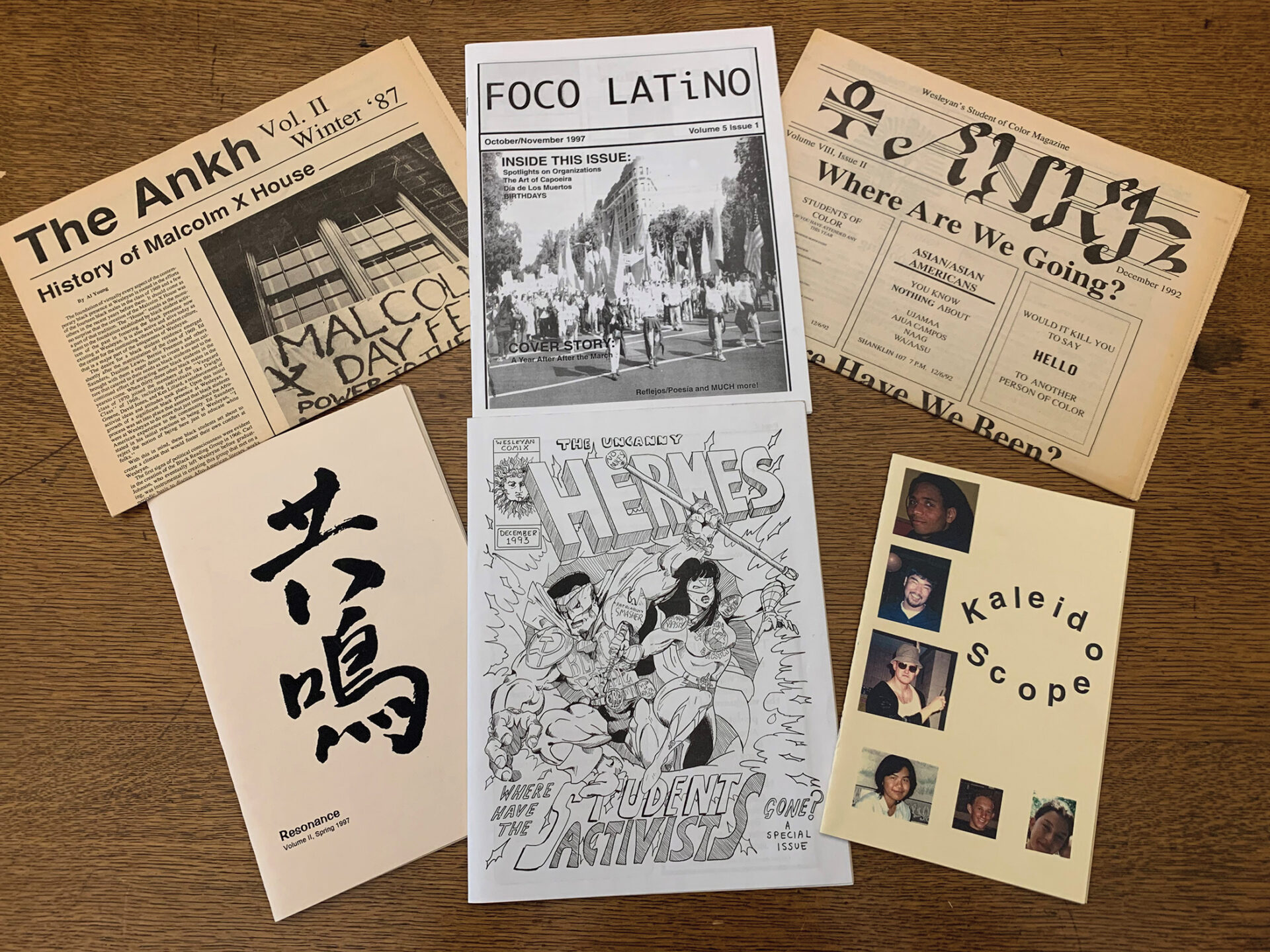Anti-Racist Community-Building Through the Arts
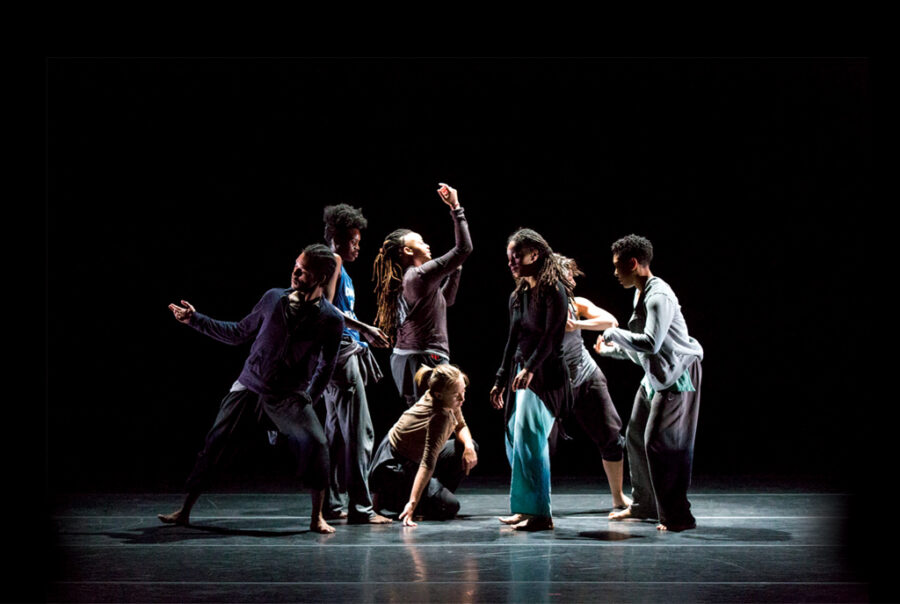
An ambitious new interdisciplinary leadership training initiative supported by The Andrew W. Mellon Foundation looks to the arts as a catalyst for transformative change on campus and in the local community.
By Lauren Rubenstein
“Over the last several decades, thanks to the work of activist students, faculty, staff, and alumni, [Wesleyan has] become more aware of the ways in which the ideology of white supremacy has affected . . . history and our own present. We try to build a different kind of community—one in which racism, hate, and intolerance have no place. This is an ongoing project, and we re-dedicate ourselves to it.”
This statement, written by Wesleyan President Michael S. Roth ’78 and signed by all members of Cabinet in May 2020, reflects the racial reckoning many were experiencing across America and serves as a clarion call to renewed and concrete action.
In grappling with these issues, Wesleyan sought input from students, faculty, staff, and alumni. Amidst a broad range of shared viewpoints, a consensus emerged that higher education—and Wesleyan in particular—has an important role to play. As Bozoma Saint John ’99 articulated in a June 2020 alumni panel discussion: “I think it’s the responsibility of the University . . . to open doors for young people who are discovering their voices and making their way to actually act on these things. . . . The University has a responsibility to allow those dreams to take shape.”
For Provost and Senior Vice President for Academic Affairs Nicole Stanton, a key leader of Wesleyan’s anti-racism efforts, it was clear that the arts and creative practice must play a pivotal role.
“In my experience, the arts have always been central to campus life. More than something that one does for entertainment or an extracurricular experience, the arts are a part of interdisciplinary collaborations through which to examine key issues, such as questions of equity and racial justice or climate change,” she explained. “There is an appetite for these kinds of really rich collaborations between artists and other scholars at Wesleyan that is truly unique.”
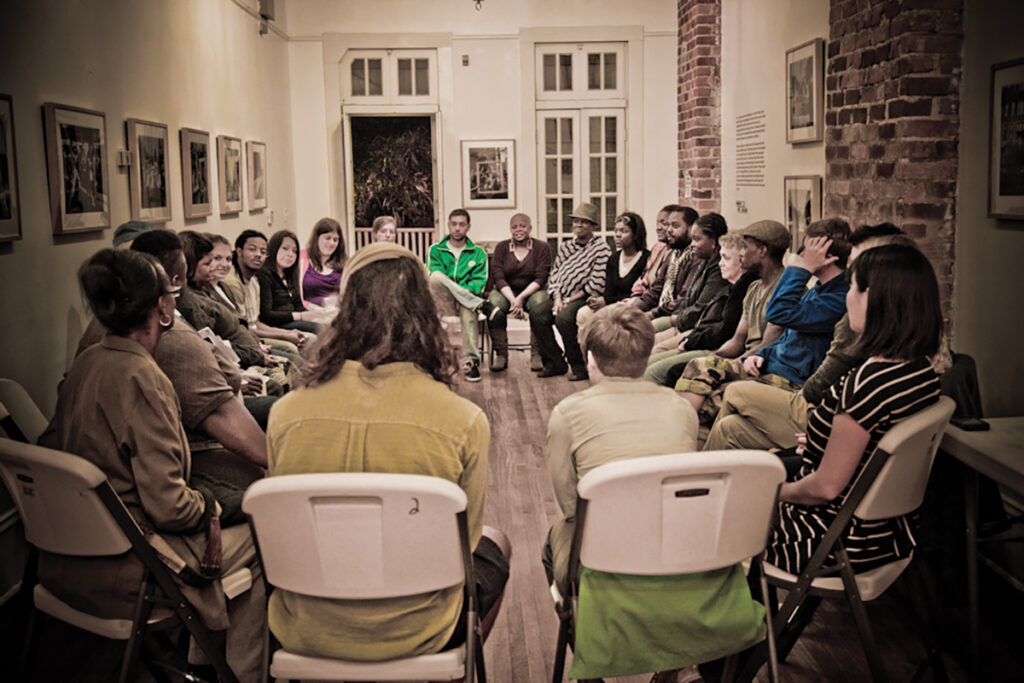
Thus, Stanton, who is also professor of dance, conceived of the Embodying Antiracism Initiative (EAI), which was developed in consultation with Jennifer Calienes, interim Center for the Arts (CFA) director, and others. It is part of a suite of efforts being undertaken by Wesleyan in striving to build an anti-racist community—ranging from faculty hiring initiatives for Black, Indigenous, and people of color (BIPOC) to support for continuing faculty and students of color to curricular enhancements. Already this year, Wesleyan has completed seven faculty searches through which six BIPOC faculty were hired. Many of these initiatives will take several years to fully implement, and University leaders have acknowledged that these efforts will be ongoing.
Wesleyan recently received a boost to this work in the form of a $1 million grant from The Andrew W. Mellon Foundation in support of the EAI. The award came at a time when the Mellon Foundation has focused on grant-making to “contribute to a more fair and just society,” in the words of its president, Elizabeth Alexander. The Mellon Foundation has supported other important Wesleyan programs over the years, including the interdisciplinary Creative Campus Initiative at the CFA and artist residencies designed to deepen engagement with the arts and expand their impact in the community. The Foundation has also supported several of Wesleyan’s colleges and centers, including the College of the Environment, College of Film and the Moving Image, and Center for Prison Education, as well as helping fund the Mellon Mays Undergraduate Fellowship program, which seeks to increase the presence of traditionally underrepresented groups in the faculty ranks at U.S. colleges and universities.
Indeed, Wesleyan’s goals for the EAI are ambitious, moving beyond the narrative of diversity and inclusion toward actual equity and full participation for community members through the introduction of proven methodologies developed by cultural organizations at the forefront of racial justice work. EAI seeks to serve as a catalyst for transformative change in the undergraduate program to bring awareness and understanding of racism through curriculum development, research, and community building. Dissemination of research and creative practice developed through the initiative will be shared with other arts and educational institutions that are also seeking successful models for linking artists, community organizers, and educators.
Partners in Change
For the EAI, Wesleyan is partnering with three groups of artist/organizers—Urban Bush Women (UBW), Junebug Productions, and the People’s Institute for Survival and Beyond (PISAB)—to offer a series of conversations, workshops, Undoing Racism trainings, and support for research.
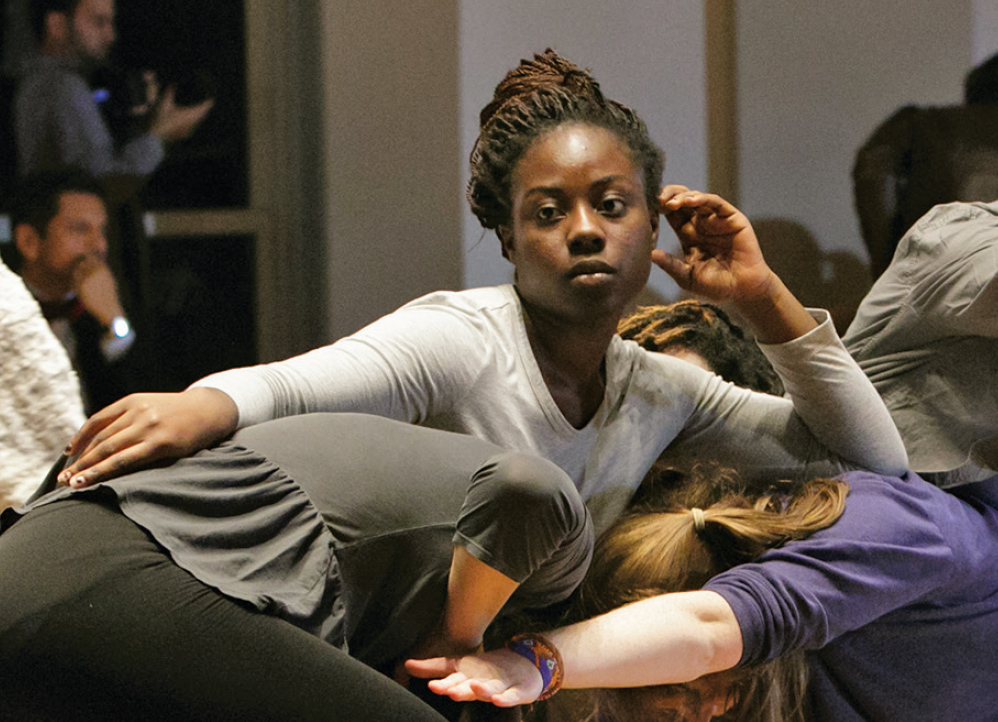
Stanton said the long-standing work of these partner organizations—which are all led by Black women—to unmask and undo racism, inspired her in thinking about how to change campus culture through the arts.
“As we experienced a national reckoning with racial violence this past summer after the death of George Floyd, I thought if there are any people who can help us to process this—help us use this moment in a way that’s productive and transformational—these three groups really can because they’ve been doing this work for decades,” she said.
UBW, a performance ensemble based in Brooklyn, New York, has a nearly 40-year-long tradition of addressing issues of race and equity through innovative dance choreography, community collaboration and engagement, and artistic leadership development. Wesleyan has a long-standing relationship with UBW and its founder, Jawole Zollar, including residencies and performances.
Junebug is the organizational successor to the Free Southern Theater (FST). In 1963, field secretaries John O’Neal and Doris Derby along with student leader Gilbert Moses co-founded FST, which would become a major influence in the Black Arts Movement. In 1980, O’Neal opened up a new chapter of art making with the founding of Junebug Productions. Junebug has been a leader in the progressive arts movement for more than 40 years. Its Story Circle process and pedagogy have been used in over 500 cities across the country to amplify stories and engage communities.
And PISAB, founded in 1980, is an internationally recognized collective of anti-racist community organizers based in New Orleans, Louisiana. PISAB has provided its Undoing Racism workshop to over 2 million people seeking to understand race and racism, and how it shows up individually, institutionally, and systemically and culturally. Referred to as the “gold standard” in anti-racist training, PISAB will conduct its Undoing Racism workshop for multiple groups at Wesleyan as part of EAI. PISAB’s 41-year history has supported and continues to support a cadre of anti-racist organizers that identifies, nurtures, and builds leadership and accountability in communities across the country.
Building a Better Future
Wesleyan will also establish an EAI Think Tank, which will bring together a diverse, multidisciplinary, and multigenerational group of faculty, visiting artists and scholars, students, and community members who are BIPOC or have a demonstrated interest in and commitment to the study of racism. These fellows will be provided with time, financial resources, and community to support their creative research. The Think Tank will identify a theme around the topic of equity and racial justice, and will spend a year conducting research on that theme.
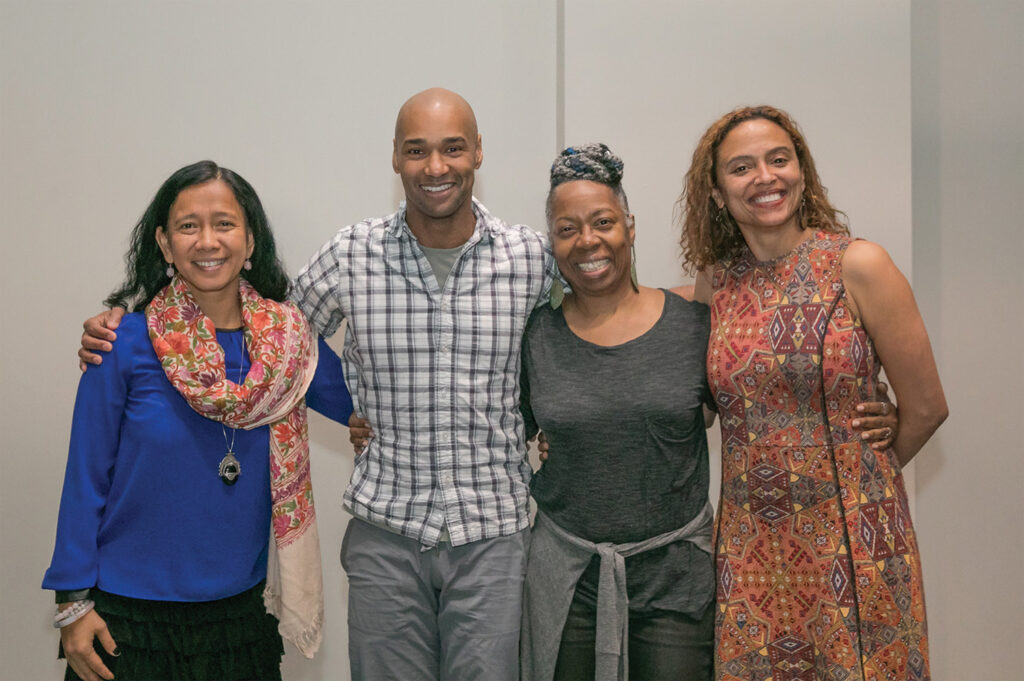
EAI will culminate in a “Leadership Institute” modeled after UBW’s Summer Leadership Institute, an annual event conducted in partnership with Junebug and PISAB for over 20 years. The Wesleyan Leadership Institute will include EAI participants and others in the community to share the research, writing, performance, and installation that is produced. The goal, said Stanton, is to equip students, faculty, staff, and community members with enhanced skills in racial and social justice work that they can use in all parts of their lives, at Wesleyan and beyond.
The initiative will also seek to develop collaborations and connections between other groups at Wesleyan—in particular, the Mellon-supported Center for the Humanities and Center for Pedagogical Innovation, and the Allbritton Center for the Study of Public Life, the Office of Equity and Inclusion, and the Resource Center—in order to build capacity for sustainable anti-racism practices across disciplines.
“I’m excited about this opportunity to support our faculty and students of color, and those who do work around the topic of racial justice, with the time, resources, and connections to really allow their work to flourish,” said Stanton. “We want to provide them with the organizing tools that they can take with them to help not just imagine a better future, but actually build it.”
Reflecting on her hopes for the initiative, Stanton added, “If just one student has a transformational experience, that would be success. If we can build a network that carries on anti-racist organizing and art-making beyond the present moment—that would be success.”
Top photo of Urban Bush Women by Sandy Aldieri, Perceptions Photography
* * *
PARTICIPATE IN THE EMBODYING ANTIRACISM INITIATIVE
Starting in fall 2021, Wesleyan student opportunities will include internships and think tank participation, and preparing for campus-wide engagement, while faculty will be able to apply for grant-supported fellowships. There will also be opportunities for local community partnerships.
For more information and to get involved, please contact Ariana Molokwu, Associate Producer for the Embodying Antiracism Initiative, amolokwu@wesleyan.edu, 860-658-2123.
Antiracism Resources at Wesleyan
Resources for Antiracists from the Office for Equity and Inclusion
Counseling and Psychological Services
Ombudsperson Israela Brill-Cass
Editor’s note: This story initially referred to the project by its original name, the Antiracism Arts Initiative (AAI). The project was renamed the Embodying Antiracism Initiative (EAI) in September 2021.

